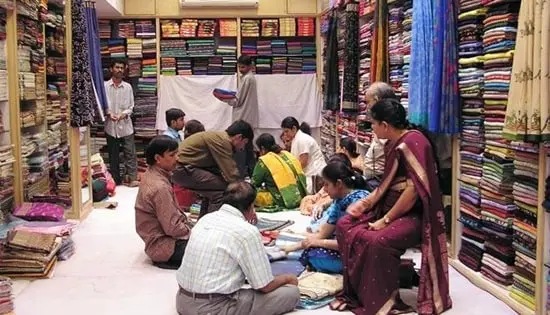Starting a saree business in India is like entering a world of culture and fashion. This guide helps you set up step by step. First, understand the saree market by looking at popular styles and prices. Decide what makes your sarees special, like focusing on bridal wear or handloom sarees. Follow the rules, register your business, and get the needed licenses. Connect with reliable saree suppliers, and if possible, create a simple website to showcase your sarees. Use social media for marketing, and provide excellent customer service. This guide is your roadmap to success in India’s saree business.
Steps To Start Your Saree Business Plan
1. Analyse Market:
Know about sarees in India before you start your business. See what styles people like and check prices. Look at other saree sellers to understand your competition. Figure out what’s missing in the market and what people want. This helps you plan the types of sarees you’ll sell. Doing good research helps you make smart decisions and gives your saree business a better chance of doing well.
2. Define Your Niche:
Decide what makes your saree business special. Choose the type of sarees you want to sell, like bridal wear or everyday sarees. Picking a specific type helps your business stand out, and it makes it clear what you’re offering to customers.
3. Legal Compliance:
Follow the rules for your saree business. Register it, get the needed licenses, and do things the right way. This helps your business run smoothly, builds trust with customers, and avoids legal problems. Stick to the rules from the start to keep everything trouble-free.
Also see: Best Textile Companies in India
4. Sourcing Suppliers:
Establish reliable connections with saree suppliers. Consider working directly with weavers or wholesalers to ensure a steady supply of high-quality sarees.
5. Online Presence:
Create a user-friendly website showcasing your saree collection. Invest in professional photography to highlight the intricate details of each saree. Leverage social media for wider reach.
6. Offline Presence:
Think about having a store for your saree business. If you can, set it up in a good location. This lets customers see and feel the sarees in person. Make the store welcoming for a good shopping experience. Having a physical store complements your online business and attracts customers who like to shop in person.
7. Pricing Strategy:
Develop a competitive pricing strategy. Consider factors like fabric quality, craftsmanship, and exclusivity when determining prices. Offering a range of price points caters to diverse customer budgets.
8. Marketing and Branding:
Invest in effective marketing strategies. Utilize social media, influencer collaborations, and traditional advertising to build brand awareness. Focus on the unique aspects of your saree collection.
9. Customer Engagement:
Build a loyal customer base by engaging with your audience. Respond promptly to inquiries, conduct promotions, and encourage customer reviews. Implement a customer loyalty program to retain clients.
10. E-commerce Platforms:
Explore selling on popular e-commerce platforms to reach a broader audience. Leverage their existing customer base and benefit from the convenience of online transactions.
11. Customer Service:
Prioritize excellent customer service. Provide accurate product information, ensure timely deliveries, and address customer concerns promptly. Positive interactions contribute to customer satisfaction and retention.
12. Collaboration with Designers:
Collaborate with local designers to create exclusive saree collections. This adds uniqueness to your offerings and attracts customers seeking one-of-a-kind pieces.
13. Packaging and Presentation:
Make your saree packaging and presentation look good. When customers receive a nicely packaged saree, it adds to their overall experience. Good packaging enhances your brand image and makes the customer feel special. Pay attention to how you present your sarees, as it contributes to customer satisfaction and leaves a positive impression.
14. Seasonal Collections:
Introduce seasonal collections and promotions to keep your inventory fresh. Aligning with festive seasons or special occasions increases customer interest.
15. Networking in the Industry:
Attend textile exhibitions, fashion shows, and industry events. Network with other businesses, designers, and influencers to stay abreast of industry trends and forge beneficial partnerships.
Wrap up
In conclusion, starting a saree business in India requires a blend of cultural understanding, business acumen, and effective marketing. By following these steps, you can create a successful venture that caters to the diverse and timeless appeal of sarees in the Indian market.















